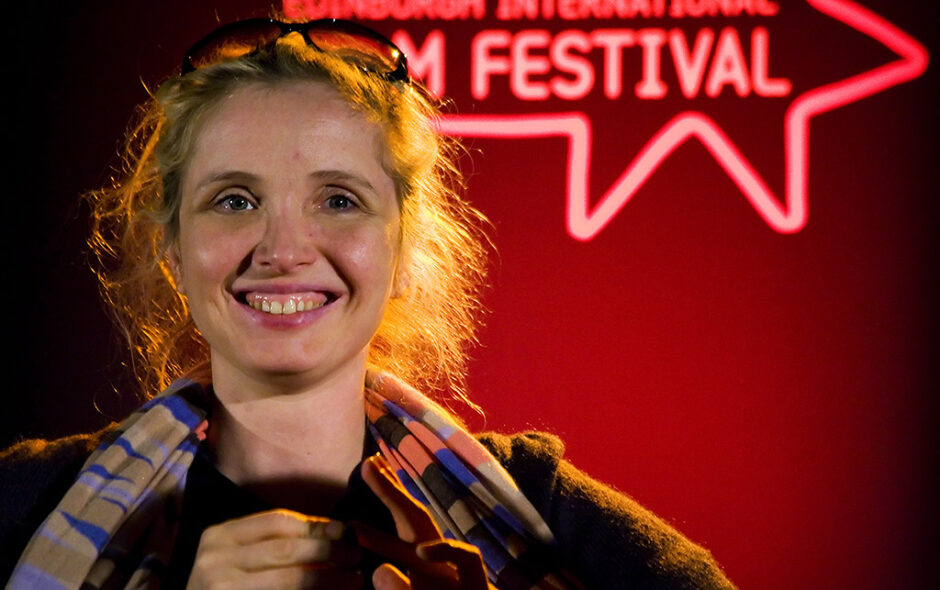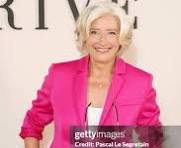In Hostage, the new Netflix limited series, Julie Delpy steps into the challenging role of Vivienne Toussaint, the French President thrust into a high-stakes crisis of her own. Paired opposite Suranne Jones’s embattled British Prime Minister, Toussaint is painted as a poised yet steely leader caught in the fray of international blackmail and political upheaval. The image above captures Delpy’s reserved intensity, offering a glimpse of her character’s composure fracturing under pressure—a perfect visual cue to the personal and political battlegrounds Hostage navigates.
Delpy brings to Toussaint a lifetime of artistic depth and nuance. A French-born actress, filmmaker, and screenwriter, she first attracted cinema audiences in the mid-1980s with a startling debut in Jean-Luc Godard’s Détective, and she earned international recognition in films like Three Colors: White and the beloved Before trilogy. Once a familiar screen presence in intimate, character-driven narratives, Delpy now inhabits the commanding persona of a world leader—which she carries with elegant resolve.
Toussaint’s arc in Hostage unfolds with deliberate restraint. She is introduced as a symbol of controlled authority, wrapped in a pristine coat, radiating calm, even as unrest simmers beneath her polished exterior. But as the plot’s blackmail scheme unfolds, Delpy’s President reveals layers of calculated survival and subtle compromise. It is a quietly riveting performance that underscores her character’s political agility—and emotional fracture—without drama ever feeling contrived.
What makes Delpy’s portrayal so compelling is the intersection of her real-world creative instincts with Toussaint’s fictional demands. Delpy is no stranger to complex characters; her career as a director and screenwriter speaks of a creative mind that thrives in nuanced territory. Now she brings that sensibility to leadership in crisis, portraying Toussaint with both emotional realism and strategic composure.
The interplay between Delpy and Jones—one elegant, measured; the other fervent and principled—signals a gripping tension at the heart of Hostage. Their shared screen time crackles with the give-and-take of two powerful women whose political convictions suddenly feel fragile. Delpy balances wisdom with uncertainty, and every gesture on her face seems deliberate, measured, a choice made under pressure.
This is a performer who has evolved with grace—once the youthful ingénue of independent filmmaking, now a mature, disciplined presence capable of commanding a political thriller. The role of President Toussaint feels tailor-made for her blend of intellect and poise. In Hostage, her scenes are quiet explosions, delivering emotional dynamite wrapped in icy control.
With her background as both an actress and a creator, Delpy brings authenticity to Toussaint’s internal conflict. She plays the weight of office—the decisions that can’t be undone, the compromises too late to retract. Her Toussaint is never cartoonishly villainous or purely sympathetic; she is simply navigating impossible circumstances with bracing clarity.
As Hostage unfolds, viewers will discover that Delpy’s reserved performance is also its most potent emotional thread. In the fraught intersection of diplomacy, personal stakes, and national security, she offers a window into the precarious paths leaders must sometimes walk. Her presence is a reminder that in even the most polished exteriors, fissures can run deep—and in those fissures, drama—and humanity—are revealed.
This is Julie Delpy at her most composed, commanding, and subtle—an actor fully inhabiting power while allowing its burdens to show. In Hostage, she gives us a glimpse of what it means to stand firm when standing still can be as perilous as taking a step under fire.




